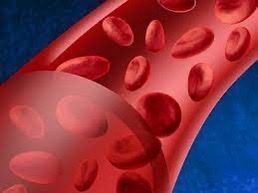Anemia is a common health condition that occurs when the body doesn’t have enough red blood cells or hemoglobin to carry oxygen to the body’s tissues.
It can cause fatigue, weakness, dizziness, and shortness of breath. 
While anemia can be caused by a variety of factors, including iron deficiency, vitamin deficiencies, chronic illness, and genetic disorders, natural health approaches that a naturopath uses, can play an important role in both prevention and treatment.
While there are several types of anemia, let’s focus on three common variants and explore how natural health can support their management:
1. Iron-deficiency Anemia:
Iron-deficiency anemia is the most common type of anemia and occurs when the body doesn’t have enough iron to produce hemoglobin. Or when the body lacks sufficient iron to produce an adequate number of healthy red blood cells.
It often results from poor dietary choices, inadequate iron absorption, blood loss, heavy periods or certain medical conditions.
Natural remedies such as incorporating iron-rich foods like leafy greens, legumes, nuts, and seeds into your diet can help replenish iron stores.
Additionally, certain herbs and supplements like nettle leaf, yellow dock, and spirulina can support iron absorption and utilization.
2. Vitamin B12 Deficiency Anemia:
Vitamin B12 deficiency anemia arises due to a lack of sufficient vitamin B12, which plays a crucial role in red blood cell production.
This deficiency can stem from poor dietary intake, malabsorption, or certain medical conditions affecting the stomach or small intestine.
Natural health approaches often involve incorporating vitamin B12-rich foods such as animal products, fortified cereals, and nutritional yeast into your diet.
However, for individuals with malabsorption issues, vitamin B12 injections or sublingual supplements may be necessary.
3. Folate-deficiency Anemia:
Folate, also known as vitamin B9, is essential for red blood cell production.
Folate-deficiency anemia typically arises from a diet lacking in folate-rich foods or conditions that interfere with proper folate absorption.
Natural remedies for this type of anemia include consuming folate-rich foods such as dark leafy greens, citrus fruits, beans, and whole grains.
However, in certain cases, folate supplements may be recommended under the guidance of a healthcare professional.
4. Anemia due to Chronic Disease:
This type of anemia occurs as a result of chronic inflammation or illness, such as kidney disease, cancer, or rheumatoid arthritis.
5. Hemolytic Anemia:
This occurs when red blood cells are destroyed faster than they can be produced, which can be caused by a variety of factors, including autoimmune disorders, infections, and medications.
6. Aplastic Anemia:
This is a rare type of anemia that occurs when the bone marrow doesn’t produce enough red blood cells.
Leah experience with patients with anemia
Although every patient is different Leah has had some great success in reducing anemia for both diet and iron anemia and for anemia due to chronic illness and autoimmune disease. 
Her treatment protocol will usually include a compounded liquid herb mix, supplements and diet.
Based on the Central Coast of NSW for face to face patients she also offers the option of a video consultation.
One of Leah’s patients Anne had this to say
“I commenced seeing Leah a few months ago as suffering from anemia – constantly tired, been to GP and Spec. After blood tests just monitoring. Leah has prescribed a herbal tonic which as seen my blood levels improve and more importantly I feel better.”
What a naturopath may do for anemia
1. Boosting Iron Levels: Iron deficiency is one of the most common causes of anemia, and increasing iron intake can help boost red blood cell production. Iron-rich foods like spinach, beans, and red meat can help, as can iron supplements.
However, it’s important to work with a healthcare professional to determine the right dosage and ensure that there are no underlying issues that need to be addressed.
2. Improving Digestion: Proper digestion and absorption of nutrients is crucial for preventing and treating anemia. Eating a healthy diet with plenty of fiber, staying hydrated, and taking probiotics can help improve digestion and absorption of nutrients.
3. Addressing Vitamin Deficiencies: Vitamin deficiencies, particularly deficiencies in vitamin B12 and folate, can contribute to anemia. Increasing intake of foods rich in these vitamins, such as leafy greens, legumes, and animal products, can help. Supplements may also be necessary in some cases.
4. Supporting the Immune System: Chronic illness and inflammation can also contribute to anemia. Supporting the immune system through a healthy diet, exercise, stress reduction, and supplements like vitamin C and zinc can help reduce inflammation and improve overall health.